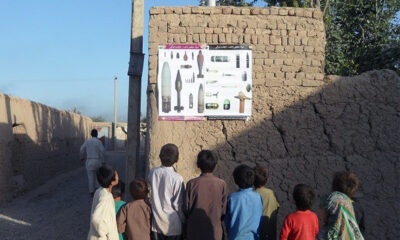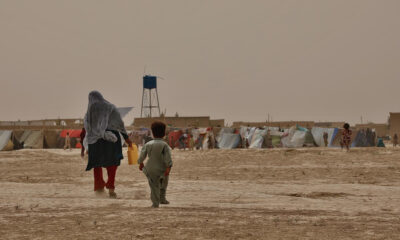Latest News
WFP reports thousands of Afghan refugees expelled from Pakistan empty-handed

Concerns about the situation of Afghan refugees being deported from Pakistan and their uncertain fate are increasing daily and thousands of these people have been returned to Afghanistan empty-handed, the World Food Program (WFP) said.
WFP published a video on Wednesday of an Afghan immigrant who, according to him, was deported after 14 years in Pakistan.
This immigrant said without mentioning his name: "We didn't bring anything from Pakistan, we brought one or two blankets. We did not bring anything else. Now we don't know what to do. There is nothing we can do."
In November, the interim government of Pakistan officially started the process of deporting more than 1.7 million undocumented Afghan immigrants.
According to the United Nations and the International Rescue Committee, nearly half a million Afghans have been deported from Pakistan to Afghanistan in the last two months.
At the same time, Deputy Prime Minister for Administrative Affairs Maulvi Abdul Salam Hanafi, said on Wednesday during a ceremony to commemorate the 44th anniversary of the invasion of Afghanistan by the Soviet Union that so far 800,000 Afghan refugees have been forcibly deported by Pakistan and Iran and that they are being processed by the Islamic Emirate of Afghanistan.
Sirajuddin Haqqani, Acting Minister of Interior, also said that countries should treat Afghan immigrants according to international standards.
Haqqani said: "We say that something that is the norm of the world or the common principles that they have made, should be treated in the same light.” “Afghan immigrants are in trouble. They returned over the course of a month during the cold winter and moved here," he said.
This comes amid an ongoing humanitarian crisis in the country.
According to United Nations, more than 29 million Afghans need humanitarian aid.
Despite the fact that various human rights defenders have repeatedly asked the Pakistani authorities to stop the forced deportation of Afghan immigrants, Islamabad has paid no attention to these requests.
Meanwhile, various institutions, including the World Food Program and the IEA government, announced that they are providing aid to the refugees returning from Pakistan.
Latest News
Ariana Television to produce and broadcast Ariana Snooker Championship in February
The tournament will be held for a week between February 11 and 17 with the participation of the country’s top 16 snooker players.

Ariana Television and Radio Network (ATN) is thrilled to announce that it will produce and broadcast the exciting Ariana Snooker Championship tournament, which is scheduled to be held in Kabul in mid-February 2025.
The tournament will be held for a week between February 11 and 17 with the participation of the country’s top 16 snooker players.
“Today, we are witnessing the signing of a contract to hold a snooker tournament. At the Ariana Television, our efforts have always been to develop domestic and international sports and to bring them to our compatriots throughout Afghanistan in a good and efficient way. This is part of our commitment to the development of sports and the sports community in Afghanistan, and we hope that by doing so, we will be able to draw greater attention to snooker,” said Lutfullah Stanikzai, ATN’s deputy managing director and director of sales and acquisitions.
Wahidullah Asghari, the head of the National Snooker Federation of Afghanistan, said: “Today, with the signing of this memorandum of understanding between the National Snooker Federation of Afghanistan and Ariana Television, another positive step has been taken towards the growth and development, encouragement and motivation of young people to this royal sport, and also towards the reflection of the activities of this federation.”
ATN and snooker federation officials also consider the holding of such events effective for the growth of snooker in the country.
Mr. Stanikzai said: “In many parts of Afghanistan, people play snooker, but it is not mechanized. I think such tournaments and such competitions will have a positive impact and I see a bright future for it.”
Mr. Asghari said: “Broadcasting these competitions through this network and this reputable global media outlet can have a valuable impact on the growth and expansion of this royal sport from the capital to the provinces and from the provinces to the villages and towns.”
It is worth mentioning that two Afghan refugee snooker players residing in Iran and Pakistan will also participate in the Ariana Snooker Championship.
Latest News
UN warns of landmine threat in Afghanistan, children most at risk
Earlier, the HaloTrust mine clearance agency said more than 65 square kilometers of Afghanistan’s territory was contaminated with improvised explosive devices, making it among the four most severely mined countries.
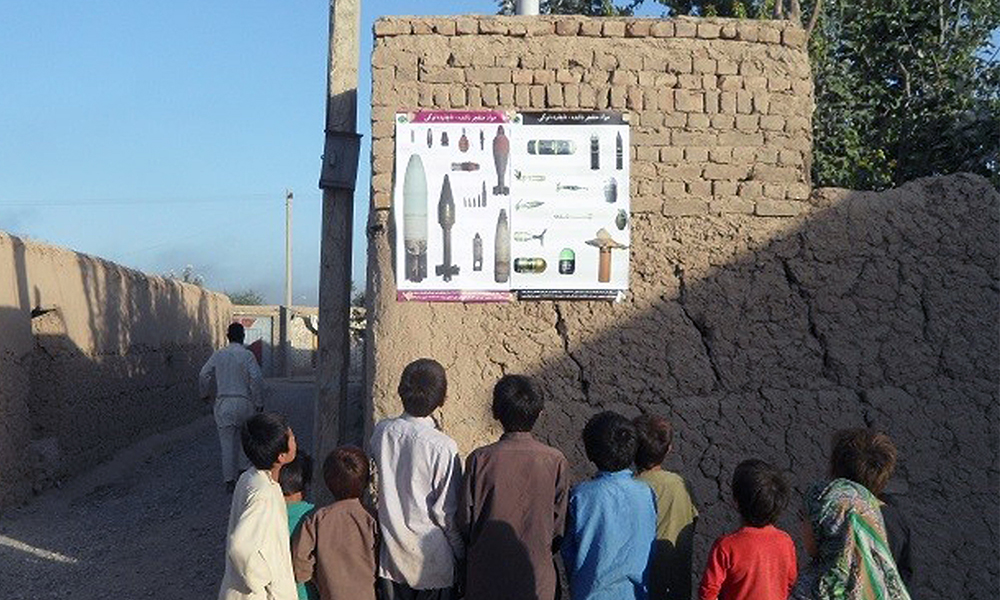
Afghanistan remains one of the world’s most heavily mine-affected countries after decades of conflict, according to the United Nations Assistance Mission in Afghanistan (UNAMA).
In a statement released Sunday, UNAMA highlighted the disproportionate impact of landmines and unexploded ordnance on children, who make up the majority of victims.
The mission called for urgent action to address the ongoing threat, which it said claims lives daily.
Earlier, the HaloTrust mine clearance agency said more than 65 square kilometers of Afghanistan's territory was contaminated with improvised explosive devices, making it among the four most severely mined countries.
It is worth mentioning that Afghanistan has been one of the countries with the highest rate of landmines and explosives left over from the war for many years, and many people, especially children, have been killed in different parts of the country.
According to the United Nations Office for the Coordination of Humanitarian Affairs (OCHA), landmines and war remnants are the second leading cause of civilian casualties in Afghanistan.
According to the UN, from January to June 2024, landmines and unexploded ordnance explosions across Afghanistan killed and wounded 292 civilians, 88 percent of them children.
Latest News
4,000 Children from Syria, Afghanistan, Morocco sought protection in Bulgaria in 2024: UNICEF
More than 473 million children – more than one in six globally – live in conflict-affected areas, according to the report.
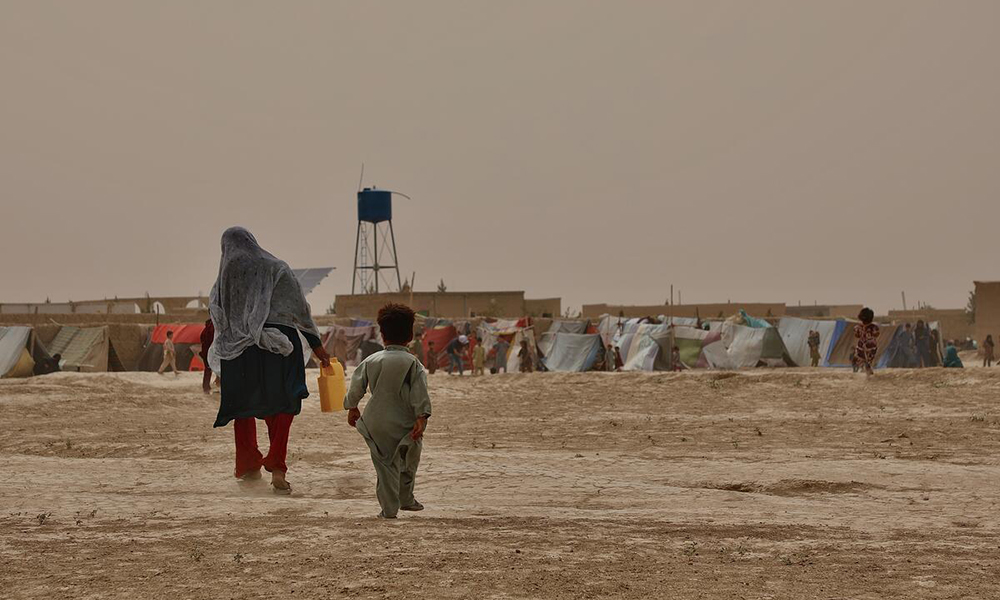
In 2024, 4,000 children from Syria, Afghanistan and Morocco and 60,000 from Ukraine sought protection in Bulgaria from military conflicts, raging in their native countries, according to a UNICEF report.
The report states that 2024 was "one of the most disastrous years for children in conflict" in the organization's history.
According to UNICEF data for 2024, more than 12,164 people mostly from Syria, Afghanistan and Morocco sought international protection in Bulgaria, of which nearly 4,000 were children, and 64% or 2,569 of them were unaccompanied.
Since the beginning of the war in Ukraine until December 18 2024, 201 389 people received temporary protection in Bulgaria, of whom nearly 60,000 were children. To date, there are just over 70,000 refugees from Ukraine in Bulgaria and 40% of them are children.
Military conflicts have had a devastating and unprecedented impact on the lives of children worldwide in 2024, according to the UNICEF report, which reviews recent data and global trends.
More than 473 million children - more than one in six globally - live in conflict-affected areas, according to the report, which also reports currently the largest number of conflicts since World War Two. The percentage of children living in areas of conflict has doubled, from about 10% in the 1990s to almost 19% today, UNICEF warns.
By the end of 2023, 47.2 million children had been displaced by conflict and violence, with trends through 2024 pointing to further displacement due to deepening conflict, including in Haiti, Lebanon, Myanmar, the State of Palestine and Sudan.
Children make up 30% of the global population, but on average account for about 40% of refugees and 49% of IDPs. In countries affected by armed conflict, more than a third of the population lives in poverty (34.8%), compared to just over 10% in countries not affected by conflict, the report says.
"Every child has the right to safety, protection, care and support, regardless of immigration status, country of origin, gender, race or religion. Every child is first and foremost a child. Refugee children need comprehensive care, access to education, healthcare, legal assistance and psychosocial support. UNICEF will continue to support children, as well as responsible institutions, in their efforts to provide effective care and protection to refugee children," said Christina de Bruin, UNICEF Representative in Bulgaria.
"By virtually every measure, 2024 was one of the most devastating years in UNICEF's history - both in the number of child victims and the extent of the catastrophic impact on their lives," said UNICEF Executive Director Catherine Russell. "A child growing up in a conflict zone is much more likely to be out of school, malnourished or forced to leave home - too often repeatedly - than a child living in peaceful areas. This should not be the new normal. We cannot allow an entire generation of children to become innocent victims of the world's unchecked wars," says Russell.
The Fund warns that access to education is often cut off in conflict zones and more than 52 million children are out of school in conflict-affected countries. Children in the Gaza Strip and a significant proportion of children in Sudan have missed more than a year of school, while in countries such as Ukraine, the Democratic Republic of Congo and Syria, schools have been damaged, destroyed or converted for other purposes, leaving millions of children without access to education. The destruction of educational infrastructure and the insecurity surrounding schools have worsened the already dire situation of children's education in these regions. The report states that malnutrition among children in conflict zones has also reached threatening proportions. Conflict and armed violence continue to be the main causes of hunger in many hotspots because of food supply problems, increased population displacement and impediments to humanitarian access. In 2024, more than half a million people in five conflict-affected countries are expected to be affected by mass hunger, the fifth most extreme phase of a food crisis, according to the report.
Conflict also has a devastating effect on children's access to life-saving health care. About 40% of unvaccinated and under-vaccinated children live in countries that are partially or fully affected by conflict. Due to lack of safety, food and health services, these children are often most vulnerable to diseases such as measles and polio, UNICEF adds, warning that the impact on children's mental health is also huge. Experiencing violence and the loss of loved ones provokes depression, nightmares and sleep difficulties, aggressive behaviour or self-isolation, sadness and fear.
2024 became the deadliest year in the history of humanitarian organizations, with 281 aid workers killed globally, surpassing previous records, UNICEF said.
UNICEF calls on all parties to conflicts and those who have influence over them to take decisive action to end the suffering of children, to ensure that their rights are respected and to uphold their obligations under international humanitarian law, the organization said in a statement on the report.
-

 World5 days ago
World5 days ago14 Syrian police killed in ambush as unrest spreads
-

 Latest News5 days ago
Latest News5 days agoEx-Pakistan envoy says US no longer values her country due to Afghanistan
-

 Business5 days ago
Business5 days agoRussia is using bitcoin in foreign trade, finance minister says
-

 Latest News5 days ago
Latest News5 days agoPakistan confirms airstrikes in Afghanistan
-

 Business4 days ago
Business4 days agoChina’s first railway consignment arrives in Afghanistan via Iran
-
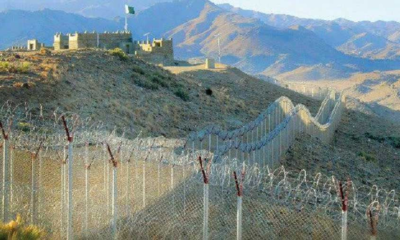
 Latest News3 days ago
Latest News3 days agoAfghanistan carries out retaliatory attack against Pakistan
-

 Latest News3 days ago
Latest News3 days agoAfghanistan as independent country has the right to self-defense: Arg
-

 Regional4 days ago
Regional4 days agoManmohan Singh, India’s reluctant prime minister, dies aged 92






